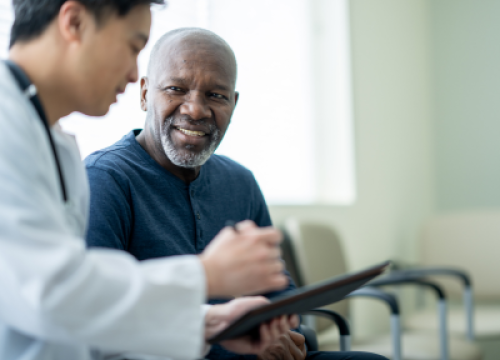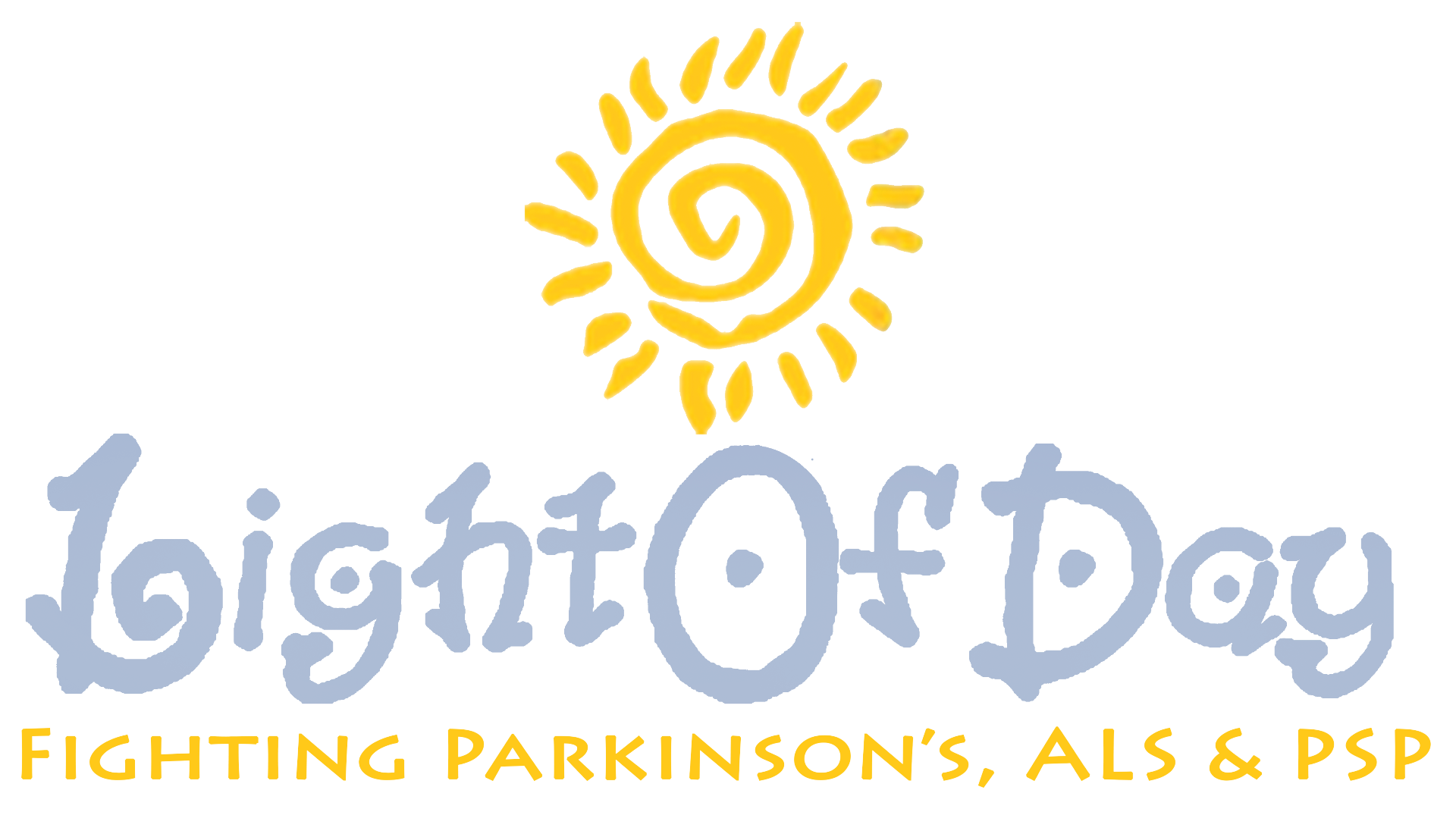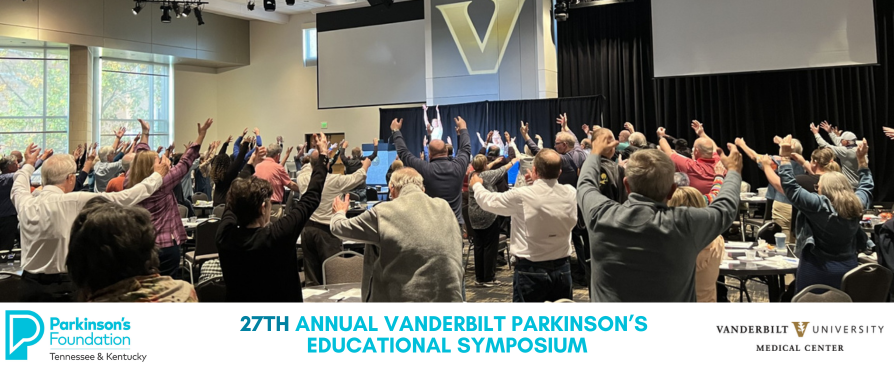Gaining Ground: The Pursuit of Improving and Introducing New Parkinson’s Medications

Biochemist Kevin McFarthing, PhD, remembers everything about his Parkinson’s disease (PD) diagnosis. “I was diagnosed at 4 p.m. on the 10th of December in 2012,” he said. Ever since, he’s been on the trail of a cure, cataloguing potential Parkinson’s therapies as a joint editor of Clinical Trial Highlights, Journal of Parkinson’s and curating the Parkinson’s Hope List, a database of more than 350 ongoing studies.
In the Parkinson’s Foundation Expert Briefing: The Latest Advances in Parkinson’s Research and Treatment, Dr. McFarthing shares the latest advances in research and how participating in clinical studies brings us closer to a cure.
An Urgency for Progress
Parkinson’s is on the rise. A Parkinson’s Foundation-supported study revealed that 90,000 people in the U.S. are diagnosed with the disease every year. By 2040, more than 12 million people worldwide will live with PD. Pharmaceutical companies are invested in speeding a cure. Identifying new Parkinson’s therapies is among top pharmaceutical research and development priorities.
“We all have our own views of what the cure might mean,” Dr. McFarthing said. For some, it might be “a magic bullet to resolve symptoms and restore our abilities back to where we were before.” While others might hope for “a drug that gives another 10 years of symptom-free life.”
The Challenges
Though drug companies are pursuing advanced therapies for Parkinson’s, costs are high and competition for funding is steep. Countless trial medications often fail in the lead-up to a successful central nervous system drug, such as levodopa (the current first-line Parkinson’s therapy, discovered more than 50 years ago).
According to the Tufts Center for the Study of Drug Development, a central nervous system therapy can cost more than $2 billion in research and take nearly 20% longer than other drugs to develop.
Parkinson’s is complex. Symptoms manifest differently in each person, making a one-size-fits-all approach to drug therapy tricky. Research participation is essential to uncover the causes behind the disease and to find new treatments for the symptoms people see — including tremor, rigidity and slowed movements — and the many non-movement symptoms that accompany PD.
Diverse research and continued investment are also essential. Luckily, as Dr. McFarthing points out, “There is a massive amount of work going on.”
Globally, there are more than 100 studies exploring ways to improve various PD symptoms. More than 250 are investigating potential disease-modifying therapies, treatments that could potentially slow, stop or reverse disease progress.
Bringing New Treatments to Light
After identifying a promising new disease treatment through observational, animal or cell studies, researchers seek clinical trial funding and participants. These carefully monitored trials are done in phases — usually testing one active agent against a placebo — to determine safety and effectiveness. Typically, a prospective therapy must successfully pass Phases 1, 2 and 3 before the Food and Drug Administration (FDA) decides whether a company can submit a new drug application.
Treatment studies to watch include:
Dyskinesia (involuntary, erratic, writhing movements) therapies targeting side effects associated with long-term levodopa use:
-
Celon Pharma S.A.’s oral, once-daily CPL'36 demonstrated positive Phase 2 results. The drug hinders activity phosphodiesterase 10a enzyme activity, increasing brain levels of certain chemical messengers to improve motor control.
-
After finishing Phase 2B trials IRLAB’s mesdopetam (IRL790) failed to meet primary endpoints. Researchers are continuing to evaluate its treatment potential. The drug blocks dopamine D3 receptor activity, which may be linked to levodopa-induced dyskinesia.
-
Phase 1 investigation of Vistagen’s AV-101 is underway. The drug targets malfunctioning N-methyl-D-aspartate (NMDA) receptors. Healthy receptors are key to nerve cell communication in the brain.
-
Sinopia Biosciences is expected to begin clinical trials for a preclinical dyskinesia drug candidate SB-0110.
Drugs that maximize “on” time — the period levodopa provides peak symptom control. As Parkinson’s progresses, a person can experience more “off” times. Therapies intended to extend “on” time include:
-
Vyalev (Produodopa in Europe), available in the U.S. as of 2024. This new levodopa formulation targets advanced Parkinson’s. A portable pump delivers a steady infusion of medicine under the skin, providing more consistent symptom control. Vyalev may also improve sleep quality, early morning “off” times and other symptoms.
-
Tavapadon stimulates select dopamine receptors to improve movement function and reduce side effects. Current dopamine agonists are nonselective and side effects can include compulsive behaviors and visual hallucinations. Tavapadon delivered good symptom control in Phase 3 trials as a standalone medication and when used in addition to levodopa. The manufacturer, AbbVie, plans to submit a new drug application to the FDA this year.
Stem cell research is challenging. It involves brain surgery and, following the implantation of cells, it takes time to see whether symptoms improve. Despite many stem cell studies for Parkinson’s, researchers had not moved beyond Phase 2 until recently:
-
BlueRock Therapeutics, a division of Bayer, submitted positive Phase 1 data on bemdaneprocel – cell therapy that aims to replace dopamine-producing neurons lost in Parkinson’s. Based on the data, the FDA granted the drug a regenerative medicine advanced therapy designation, allowing it to move into Phase 3 trials in early 2025.
Investigational therapies holding promise to stop or slow PD progression include:
-
Neurotrophic growth factors, molecules that stimulate nerves to grow. These may benefit people with Parkinson’s. AskBio’s AB-1005, a glial cell line-derived neurotrophic factor (GDNF) delivered directly to the brain, may minimize dopamine loss associated with Parkinson’s.
-
Potential neuroprotective benefits of brain-derived neurotrophic factor and cerebral dopamine neurotrophic factor.
-
NLRP3 Inflammasone protein inhibitors aim to block activation of inflammatory molecules linked to loss of dopamine in Parkinson’s.
-
Potential neuroprotective benefits of nicotinamide riboside, a form of vitamin B3.
Researchers are also exploring ways to prevent buildup of alpha-synuclein protein, the protein that forms toxic clumps, called Lewy bodies, in the brain of people with PD:
-
Roche’s Phase 2 studies of prasinezumab, targeted accumulation and spread of alpha-synuclein. The study did not meet its goal, but the company plans to pursue data that potentially shows benefits of prasinezumab in early Parkinson’s.
-
Annovis Bio Phase 3 recently concluded studies of buntanetap, a drug that reduces alpha-synuclein production. Buntanetap did not meet the study’s goals. However, the company plans to continue investigating the drug.
-
Mutations in the GBA gene (which makes the enzyme glucocerebrosidase, or Gcase) are one of the most common genetic risk factors for PD. Several companies are researching whether compounds that stimulate Gcase activity can improve motor function or offer neuroprotection.
-
Ambroxyl, a cough medicine used to decrease phlegm, has been shown to increase Gcase activity in people with Parkinson’s. It may clear away toxic alpha-synuclein clumps. A Phase 3 trial is underway.
-
LRRK2 gene mutations are the most common cause of genetic PD. Investigational studies at four companies are exploring how LRRK2 inhibitors might provide neuroprotective benefits. Another five companies are in clinical trials.
-
Other potential disease-modifying therapies include GLP-1 agonists. Primarily developed to control diabetes, GLP-1 agonists mimic the human glucagon-like peptide-1 (GLP-1) hormone, which controls blood sugar and appetite. Recent GLP-1 agonist studies include:
-
Lixisenatide therapy. Phase 2 trial participants with early PD experienced less motor disability progression than placebo at 12 months. However, many participants experienced gastrointestinal side effects.
-
Liraglutide showed significant improvement in some non-motor symptoms, but no difference in motor symptoms during Phase 2 study.
-
Phase 3 investigation of exenatide showed the drug was safe and well-tolerated but showed no advantage over placebo in Parkinson’s.
-
Phase 2 investigations of NLY01, modified exenatide, did not show improvement in Parkinson’s symptoms.
-
Researchers are awaiting results of a Phase 2 Oslo University Hospital clinical study exploring the potential value of semaglutide in Parkinson’s.
Building on Hope
The only way to speed the development of treatments that can slow or stop Parkinson’s is through amplified, ongoing funding. The Parkinson’s Virtual Biotech, a partnership between the Parkinson’s Foundation and Parkinson’s UK, is funding 11 new medications and therapies in research and development.
The Edmond J. Safra Accelerating Clinical Treatments for Parkinson's Disease (EJS-ACT PD) Initiative aims to fast-track safe drug testing therapies using multi-arm multi-stage (MAMS) trial designs — a newer, more cost-effective approach.
MAMS trials allow researchers to assess multiple treatments at once against a placebo. Researchers can discover what is working and discard what is not, without dismantling a trial and starting again. The goal is to facilitate a seamless, cost-effective transition to the next phase of trials and bring effective new therapies to market faster. Other Parkinson’s MAMS trials are underway around the world.
“We expect to get more failures than successes because of the nature of what we’re trying to do,” McFarthing said. “But we believe that something will come out of this.”
How to get involved in Parkinson’s research:
1. Participate in PD GENEration.
Related Materials
Related Blog Posts

8 Tips for Traveling with Parkinson’s





